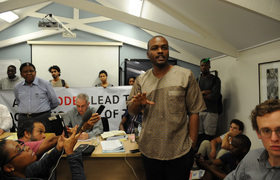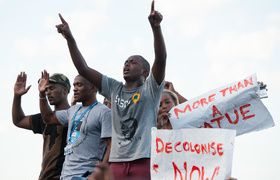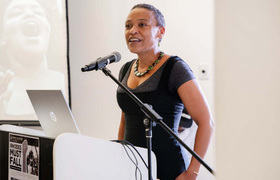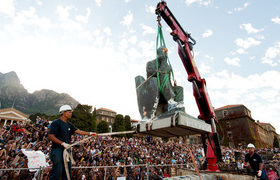RMF10: PhD study challenges narratives around protest violence
02 May 2025 | Story Kamva Somdyala. Photos Michael Hammond. Read time 7 min.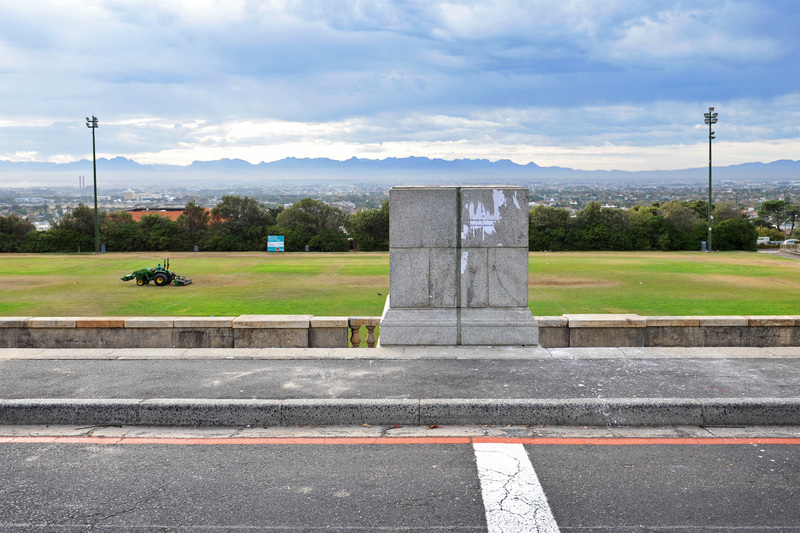
Dr Mapheyeledi Sibindlana, University of Cape Town (UCT) graduate and founder of Root_Fed Consultancy, has completed a groundbreaking PhD that critically examines how violence is understood and represented in the context of student protest.
Awarded in 2024 by UCT’s Faculty of Health Sciences, her study – Understanding violence within protest: a case study investigation of the Rhodes Must Fall (RMF) Movement at the University of Cape Town (2015–2016) – challenges dominant narratives around protest violence, and explores how these interpretations often obscure underlying power structures within universities.
Dr Sibindlana’s research draws on decolonial theory to interrogate how the label of “violence” is applied in protest settings, often without fully acknowledging the conditions that drive dissent. She argues that these interpretations can serve to delegitimise protest and protect institutional authority.
Rhodes Must Fall was a movement initiated by campus-wide protests for the removal of the statue of Cecil John Rhodes on UCT’s campus. It was removed on 9 April 2015, a seminal day for the institution.
“Getting participants to engage with me was the hardest part,” Sibindlana recalled. “There was resistance on two fronts: some questioned my legitimacy because of where I’m located (Health Sciences), and others were uncomfortable with a decolonial framework that offers no neutral ground – only coloniser or colonised. That is confronting for a lot of people.”
‘Microaggressions and avoidance’
This discomfort, she explained, manifested as microaggressions and avoidance, dynamics she identifies as a form of “violence” in their own right. Her research highlights how silence and denial can operate as tools of coloniality within the university setting.
In contrast, student activists, staff and workers who participated in the RMF movement readily agreed to engage with the study. Many recognised the importance of interrogating protest violence and saw their actions as rooted in a long history of resistance against structural inequality in South Africa.
“Coloniality continues to endure because it presents itself as normal. RMF really disrupted that – it made the invisible visible.”
She also noted a widespread view that the university has “moved on” from RMF, a sentiment she said undermines the movement’s legacy and ongoing relevance.
‘Coloniality endures’
“Some felt there was no need for this study because RMF was over. But coloniality endures,” Sibindlana said. “We do the research, cite the theorists, walk across the graduation stage in red gowns, but the structures remain. That realisation has serious consequences for our collective well-being, especially for those who led the movement and bore the brunt of the consequences.”
Her research also includes perspectives from police officers, revealing the tensions faced by black officers during student protests. Many shared lived realities with the students, but were expected to prioritise law enforcement – a system she said was itself shaped by colonial legacies.
“Police often experience dissonance. They don’t have the space to name or challenge coloniality within their work, even when it drives or escalates conflict.”
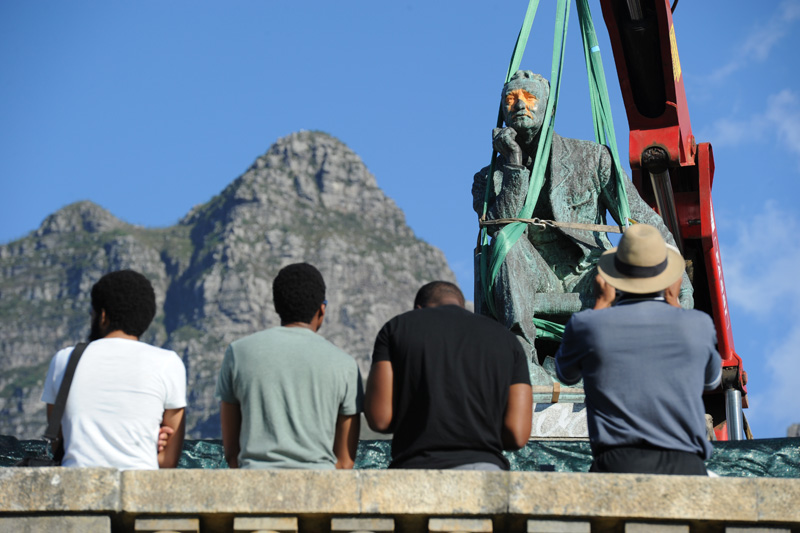
When asked who her research is for, Sibindlana is clear: everyone. But she says institutions of higher learning, in particular, have a responsibility to reflect on their roles in sustaining inequality.
“Coloniality continues to endure because it presents itself as normal. RMF really disrupted that – it made the invisible visible. This research tells our story as a diverse collective, and shows how we continue replicating and reproducing coloniality, despite our resistance or denial thereof.”
Sibindlana described the student activists’ stories as “gold”: “They offer raw accounts of being black at UCT, and the denial of dignity that persists, despite the university’s transformation agenda.”
She hopes the study will contribute to deeper reflection and more honest engagement with the realities of institutional change.
 This work is licensed under a Creative Commons Attribution-NoDerivatives 4.0 International License.
This work is licensed under a Creative Commons Attribution-NoDerivatives 4.0 International License.
Please view the republishing articles page for more information.







